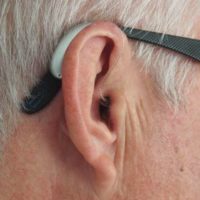
People with both visual and hearing impairments are twice as likely to develop dementia as their peers with normal sensory function, a nationwide elder study from South Korea finds. But having one condition alone is not linked to dementia, investigators say.
Participants included more than 6,500 people between the ages of 58 and 101. Dementia was more than twice as common in the group with both impairments at the study’s start, the researchers noted.
The prevalence of dementia continued as the elders were tested for thinking and memory skills over a six-year period and more developed dementia. The results showed that:
- Among the 1,964 people with both impairments, 146 developed dementia;
- Among 2,396 people with one impairment, 69 developed dementia;
- Only 14 of the 737 participants with no visual or hearing impairments developed dementia; and
- Among 142 people who reported that they could not determine whether they had a sensory impairment, 16 developed dementia.
People with only one impairment were no more likely to develop dementia than those with normal sensory function, the researchers said.
“Older people with only a visual or hearing impairment can usually still maintain social contact, so they may not feel as isolated or depressed as people who have both impairments,” said investigator JinHyeong Jhoo, M.D., Ph.D., of Kangwon National University School of Medicine in Chuncheon, South Korea. “However, when someone has both impairments, that may increase the risk of isolation and depression, which previous research has found may affect dementia risk and thinking skills later on.”
The study was limited by its questionnaire format to determine extent of sensory impairment versus objective measures, the authors noted.
Full findings were published in the journal Neurology.



